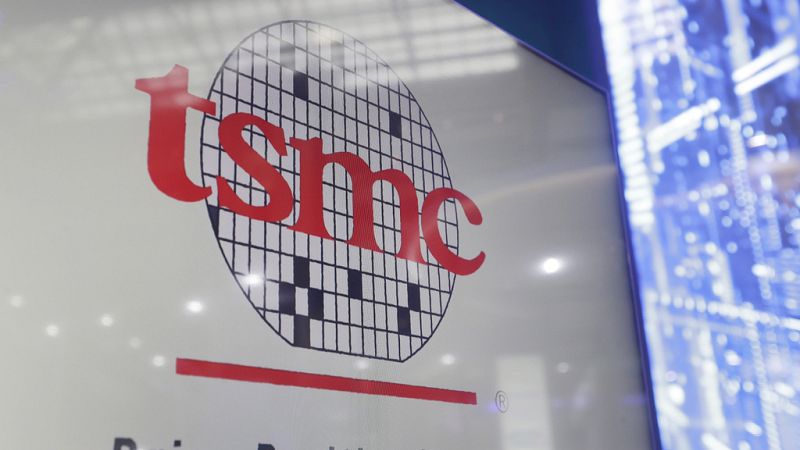
Chipmaking giant Taiwan Semiconductor Manufacturing Company (TSMC) reported better-than-expected results for the second quarter and also fuelled investors’ hopes by raising its 2025 outlook.
The firm, delivering to Apple and Nvidia among others, is benefiting from big tech companies’ hunger to build their AI capacities, resulting in a resilient demand for high-end semiconductors.
For the three months ending 30 June, the company’s net income was NT$398.2bn (€11.7bn), 60.7% up compared to last year.
Year-over-year, second quarter revenue increased by 38.6%, and came in at NT$933.7bn (€27.35bn),
Compared to the first quarter of 2025, second quarter results represented an 11.3% increase in revenue and a 10.2% increase in net income.
“TSMC delivered a strong beat, ahead of expectations. Margins remained solid despite currency headwinds from a stronger Taiwanese dollar,” said Ben Barringer, global technology analyst at Quilter Cheviot.
He added, “AI‑related demand continues to be the engine of growth, while non‑AI segments are beginning to recover more steadily.”
“Our business in the second quarter was supported by continued robust AI and HPC (High-Performance Computing)-related demand,” said Wendell Huang, Senior VP and Chief Financial Officer of TSMC. “Moving into the third quarter of 2025, we expect our business to be supported by strong demand for our leading-edge process technologies.”
TSMC raised guidance for Q3, now expecting over 30% year‑on‑year sales growth, up from previous full‑year expectations of 25%. “Revenue is expected to be between $31.8bn and $33bn,” their statement said.
With Trump’s tariff policy, uncertainty is also in the cards
Washington’s tariff policy is overshadowing the company’s outlook. Taiwan is in talks with the US to set lower trade tariffs on its exports to the country than the 32%, President Donald Trump announced in April.
Taiwan is also one of the countries expecting a letter from the US President in the coming days, similar to those Trump has used to outline tariffs for other countries over the past week—including 30% for the European Union, if there is no trade deal before a recently postponed deadline of 1 August.
Earlier this month, the US President also warned of potential additional tariffs on semiconductors.
Recently, investors piled back into AI-linked companies, pushing Nvidia to become the first company in history to hit a $4 trillion market capitalisation, after its shares hit a new record.
However, individual company news fuel concerns that the market trend may be short-lived. A day before TSMC’s results, Dutch chipmaking firm ASML saw its shares drop drastically after the company lowered its financial outlook for 2026 due to “increasing uncertainty” in geopolitics, according to CEO Christophe Fouquet.
As for TSMC, investors appear to be optimistic. After the earnings report, Taiwan Semiconductor’s stock price rose 4% in premarket trade in the US.







